#welcome to the mcu denzel
Explore tagged Tumblr posts
Text
Take my money now, please.
Right Now.
#black panther 3#denzel washington#ryan coogler#welcome to the mcu denzel#black panther#this man is about to be busy#before he retires
13 notes
·
View notes
Text
round up // MARCH + APRIL 21
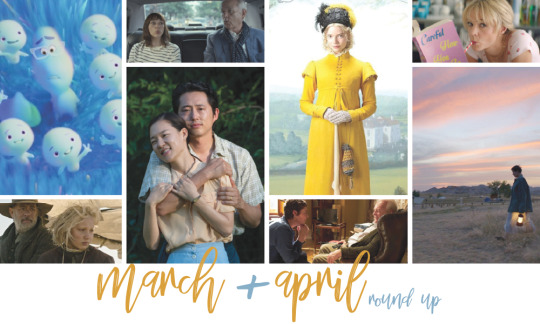
March and April were a whirlwind of vaccines and awards shows! A full year after we starting staying at home, the end of this weird chapter in recent history seems like it might finally be coming to a close, and this pop culture awards season—typically a time full of fun and glamour���captured our moment weirdly well. (Emphasis on the weird.) This month’s recommendations is filled with more Critic Picks than usual, so without further delay, let’s dive right in...
March + April Crowd-Pleasers
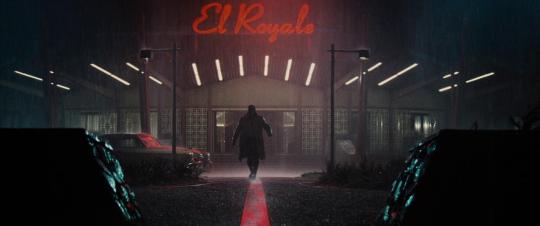
Double Feature — 2018 Action Thrillers: Bad Times at the El Royale + Den of Thieves
In Bad Times at the El Royale (Crowd: 9/10, // Critic: 8/10), Jeff Bridges, Cynthia Erivo, Jon Hamm, Chris Hemsworth, and Dakota Johnson are staying at a motel on the California-Nevada state line full of money, murder, and mystery. In Den of Thieves (Crowd: 9/10 // Critic: 6.5/10), Gerard Butler takes on some of the best bank robbers in the world. Whether you like your action with a dose of mystery or the thrills of plot twists, these will fit the bill.
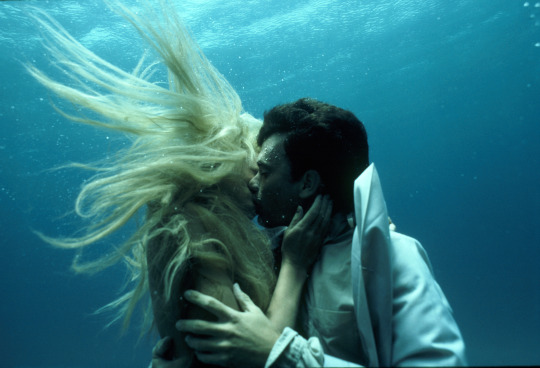
Double Feature — ‘80s Comedies: Caddyshack (1980) + Splash (1984)
In the mood for pure silliness? Take your pick between a mermaid and a gopher! Five years before The Little Mermaid, Tom Hanks fell for Daryl Hannah’s blonde hair and scaly tail, and John Candy was his goofy brother in Splash (Crowd: 8.5/10 // Critic: 7/10). And four years before Ghostbusters, Bill Murray was the goof on a golf course full of funny people like Chevy Chase, Rodney Dangerfield, and Ted Knight in Caddyshack (Crowd: 8.5/10 // Critic: 6.5/10).
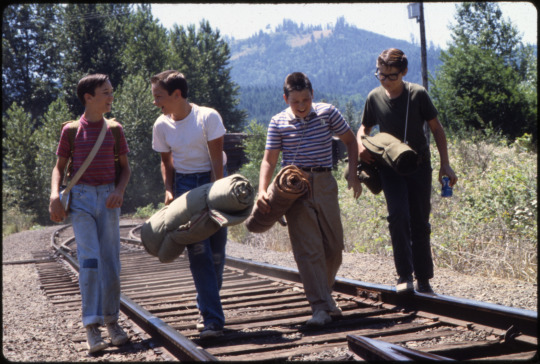
Double Feature — 1980s Coming-of-Age Films Starring Corey Feldman, Kiefer Sutherland, and Challenging Brother Relationships That Influenced Stranger Things: Stand by Me (1986) + The Lost Boys (1987)
Believe it or not, I had no idea these two ‘80s classics had so much in common when I chose to watch them back-to-back. In Rob Reiner’s adaptation of Stephen King’s Stand by Me (Crowd: 9/10 // Critic: 9/10), four kids (Feldman, Jerry O’Connell, River Phoenix, and Wil Wheaton) are following train tracks to find a missing body. In The Lost Boys (Crowd: 8.5/10 // Critic: 7/10), Corey Haim and Jason Patric move to a small California town and discover it’s full of ‘80s movie star cameos and…vampires? One is a thoughtful coming-of-age story and one is just bonkers, but both are a great time.
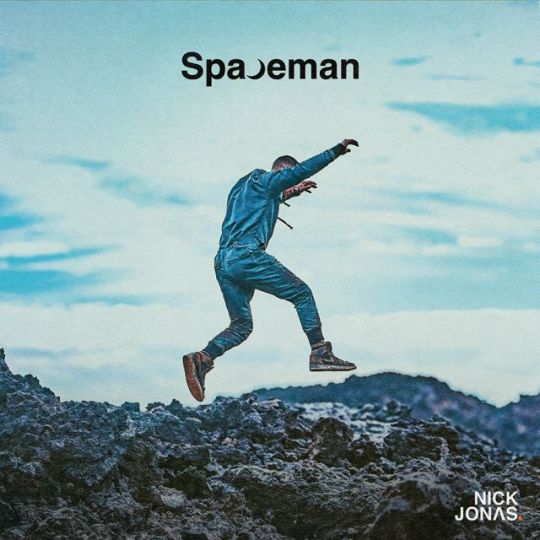
Spaceman by Nick Jonas (2021)
My love for the Jonas Brothers is well-documented, so instead of going down the rabbit hole I started digging at 15, I’ll talk about how Nick Jonas’s latest solo album will likely appeal to a wider audience than just the fans of the brothers’ bombastic pop records. It’s full of catchy tunes you’ll play on repeat and an R&B-influenced album experience about the loneliness we’ve experienced in the last year and how we try to make long-term relationships work.
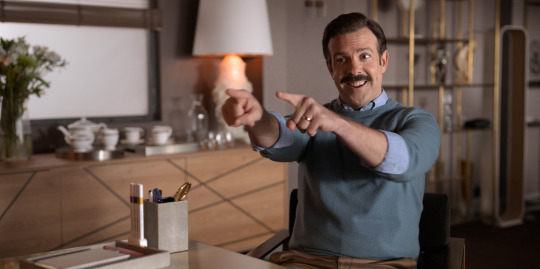
Ted Lasso (2020- )
I love stories about nice people crushing cruelty and cynicism with relentless kindness, and Ted Lasso (Jason Sudeikis) is the warmest, most dedicated leader this side of Leslie Knope. Be sure to catch up on these witty and sweet 10 episodes before season 2 drops later this summer.
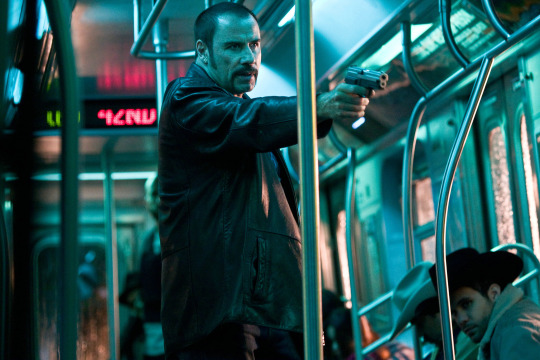
Double Feature — Tony Scott Action Flicks: Enemy of the State (1998) + The Taking of Pelham 123 (2009)
Tony Scott’s movies have got explosions and excitement in spades. I love a good man-on-the-run movie, and in Enemy of the State (Crowd: 9/10 // Critic: 8/10), Will Smith is running through the streets of D.C. after getting evidence of a politician’s (Jon Voight) part in a murder. I also love a tense story set in a confined space, which is what Denzel Washington is dealing with in The Taking of Pelham 123 (Crowd: 9.5/10 // Critic: 7/10) after a hammy John Travolta takes a New York subway train hostage.
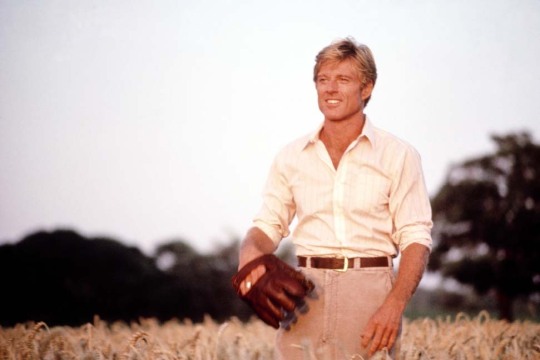
Double Feature — Baseball Movies: The Natural (1984) + Trouble With the Curve (2012)
Sue me—I love baseball movies. Robert Redford plays a fictional all-time great in the early days of the MLB in The Natural (Crowd: 8.5/10 // Critic: 9/10), and Clint Eastwood plays a fictional all-time great scout in his late career in Trouble With the Curve (Crowd: 8/10 // Critic: 7.5/10). If you love baseball or actors like Amy Adams, Glenn Close, Robert Duvall, and Justin Timberlake, these movies are just right here waiting for you.
youtube
Nate Bargatze: The Greatest Average American (2021)
Sue me—I enjoy Netflix standup comedy specials that are safe enough to watch with your whole family. That’s exactly the crowd I laughed with over Easter weekend, and while the trailer captures Bargatze’s relaxed vibe, it doesn’t capture how funny he really is.
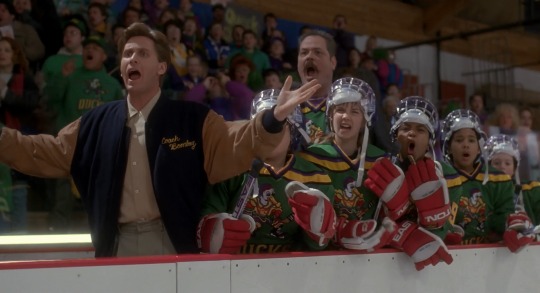
The Mighty Ducks (1992)
I thought somewhere in my childhood I’d seen at least one of The Mighty Ducks movies, but after watching all three, I think my memories must’ve come from previews on the VHS tapes for other Disney movies I watched over and over again. The original still holds up as an grown-ups, which is why even my parents got sucked in to this family movie while just passing through the living room. Bonus for ‘80s movies lovers: Emilio Estevez is basically continuing Andrew Clark’s story from The Breakfast Club as an adult. Crowd: 8.5/10 // Critic: 6.5/10

Double Feature — New, Dumb Action on Streaming: Godzilla vs. Kong + Thunder Force (2021)
If you want something intelligent, go ahead and skip to the next recommendation, but if you’re looking for something stupid fun, these are ready for you on HBO Max and Netflix. Thunder Force (Crowd: 8.5/10 // Critic: 6/10) follows Melissa McCarthy and Octavia Spencer as they train to become superheroes who take on superhuman sociopaths wreaking havoc on Chicago, and alongside Jason Bateman, they do it with a lot of laughs. Godzilla vs. Kong (Crowd: 9.5/10 // Critic: 5/10) is, um, exactly what it sounds like, so I’ll skip a plot summary and just say it’s exactly what you want from this kind of movie. #TeamKong
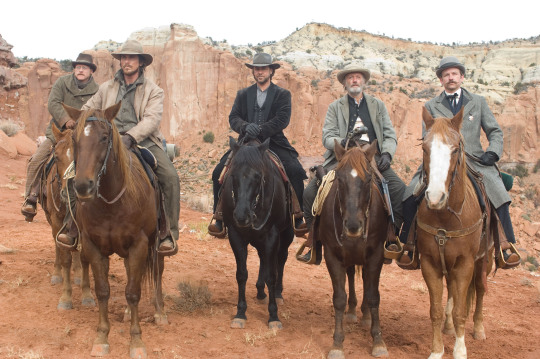
3:10 to Yuma (2007)
All you need to know is Russell Crowe is an outlaw, and Christian Bale is the guy who’s got to get him on the train to prison. I also watched the 1957 version, which is also a solid watch if you love classic Westerns. Crowd: 9/10 // Critic: 8/10
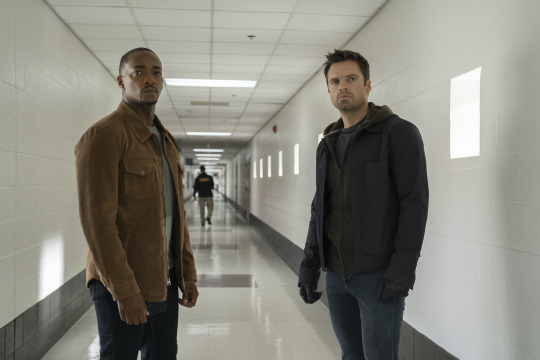
Falcon and the Winter Soldier (2021)
Marvel’s newest series isn’t nearly as inventive as WandaVision, and it may not land every beat, but it’s worth a watch for the fun new gadgets, Sebastian Stan’s dry joke delivery, and its exploration into themes of what makes a hero and what governments owe their citizens. It’s a pretty satisfying entry in the MCU canon, but I’d also recommend re-watching Captain America: Winter Soldier and Civil War—the canon is getting expansive, and it’s getting trickier every year to keep up with all the backstory.
March + April Critic Picks
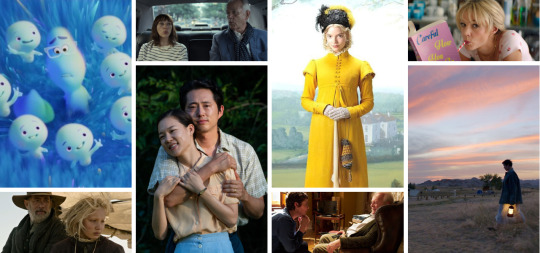
Best of 2020 Picks
As per usual, the months leading up to the Oscars becomes a binge period for potential Oscar nominees. In March and April, I watched many of the films that made my Top 20 of 2020, including Boys State, The Father, Judas and the Black Messiah, Let Them All Talk, Minari, Nomadland, On the Rocks, One Night in Miami…, Promising Young Woman, Soul, and Sound of Metal. You can read how I ranked them on my list for ZekeFilm, plus reviews of The Father, Minari, Promising Young Woman, and Soul.
Bonus: If you loved On the Rocks, don’t miss this feature and beautiful photography starring Sofia Coppola, Kirsten Dunst, Elle Fanning, and Rashida Jones for W Magazine.
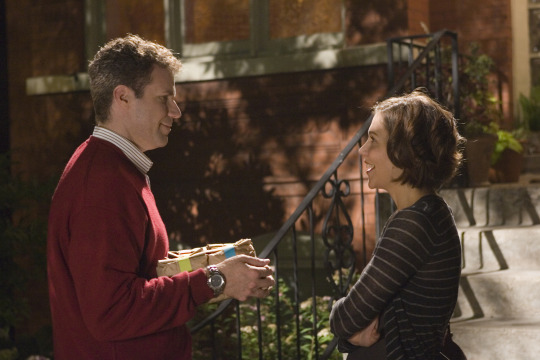
Stranger Than Fiction (2006)
What would you do if you started hearing a voice who narrated your every thought and move? If you’re Will Ferrell, you’ll seek out a literary professor (Dustin Hoffman), fall in love (with Maggie Gyllenhaal), and track down the voice (Emma Thompson) who’s making ominous predictions about your future. Stranger Than Fiction is funny thought-provoking, and an unusual but welcome role for Ferrell. Crowd: 9.5/10 // Critic: 9/10
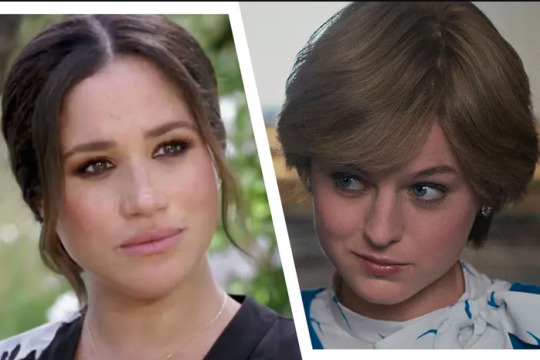
All the Royal Family News
Speaking of stranger than fiction, it’s been a busy few months for the Royal Family. We’ve celebrated 95th birthday of Queen Elizabeth, the 3rd birthday of Prince Louis, and the 10th anniversary of Will and Kate’s marriage. We also lost Prince Philip, and we watched the drama of Harry and Meaghan’s interview with Oprah. No matter what happens to their Crown, I don’t think we’ll ever get over our fascination with the Windsor family. A few pieces worth reading from the last few months:
“In Meghan and Harry’s Interview, Two TV Worlds Collided,” Vulture.com
“The Queen’s Man: Philip, Duke of Edinburgh, Dies,” TIME.com
“Obituary: HRH The Prince Philip, Duke of Edinburgh,” BBC.com
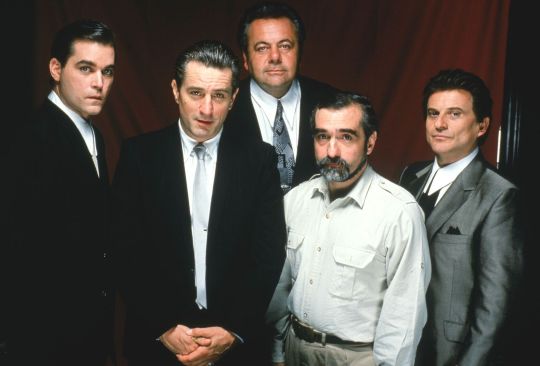
Goodfellas (1990)
One of my film opinions that makes me feel like a phony is that Martin Scorsese just isn’t my cup of tea. He’s brilliant, but his films tend to be long and dark, two qualities that are never my first choice…and somehow Goodfellas still worked for me? Maybe it was the TV edit graciously toning down the violence or maybe it was that Ray Liotta and Joe Pesci were firing on all cylinders, but for some reason this ‘90s classic didn’t suck the joy out of my evening like Scorsese often does. (Bonus: For a Martin Scorsese/Robert De Niro I don’t really recommend, head to the last section of this Round Up.)
youtube
Fearless (Taylor’s Version) (2021)
Her voice has only matured, so Taylor Swift revisiting her old albums is like upgrading a blast to the past. Plus, the six new tracks make me feel like 15 crushing on that boy in Spanish class again, and her Grammys performance (just before her third Album of the Year win) was magical and folklore-tastic.
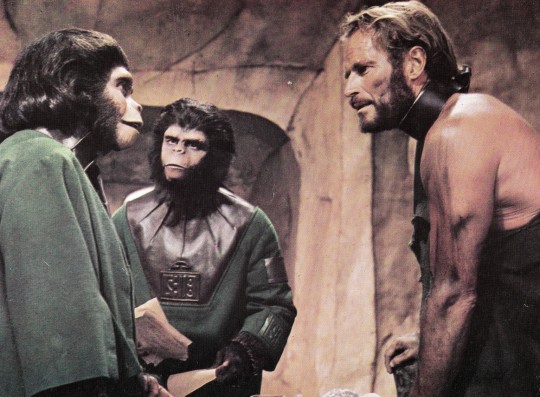
Double Feature — ‘60s Action Classics: The Guns of Navarone (1961) + Planet of the Apes (1968)
The Guns of Navarone (Crowd: 8/10 // Critic: 8.5/10) follows Gregory Peck and David Niven as they destroy Nazi weapons in the Mediterranean. Planet of the Apes (Crowd: 8/10 // Critic: 8.5/10) follows Charlton Heston as he attempts to escape from, well, a planet full of apes. The pacing of ‘60s films doesn’t always hold up, but that’s not the case with this pair. Both are still full of suspense, and you can’t go wrong hanging with casts like these.
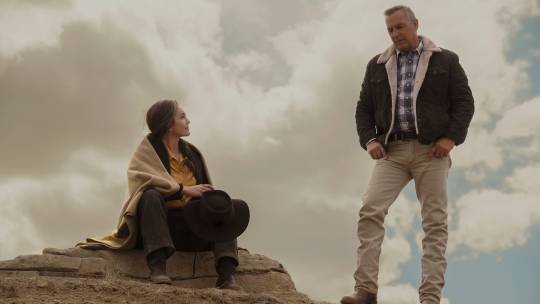
Let Him Go (2020)
Kevin Costner and Diane Lane play a farming couple who unexpectedly help raise a boy who lost his biological father—sound familiar? But instead of a superhero origin story, they’re part of a thrilling Western with performances nuanced (Costner and Lane) and showy (Lesley Manville). If I’d watched this before completing my Best of 2020 piece, it likely would’ve been on my list. Crowd: 8/10 // Critic: 8.5/10
youtube
The Oscars
I’m a ride-or-die fan of the Academy Awards, but I’ll admit even I found this year’s ceremony odd. Instead of focusing on what wasn’t so hot, I’ll recommend a few moments you don’t want to miss:
Emerald Fennell giving a shout-out to Saved by the Bell
Daniel Kaluuya acknowledging his parents’ sex life during his acceptance speech (??)
Yuh-Jung Yoon flirting with Brad Pitt and acknowledging she’s just “luckier” than her fellow nominees
Glenn Close dancing to…”Da Butt”?
You can also read about the historic wins and nominations from this year’s Oscar class and why the Golden Globes were an even stranger production weeks earlier.
youtube
Trailer-palooza!
Movies are on their way back, y’all! I’m counting down the days until I can get back to a theatre, and even if some of these movies are duds, I’m planning to see all of them on a big screen if possible:
Those Who Wish Me Dead (May 14)
Cruella (May 28)
In the Heights (June 11)
Space Jam 2 (July 16)
Shang-Chi and the Legend of the Ten Rings (September 3)
West Side Story (December 10)
Also in March + April…
To add to the Oscars love, you can listen to a conversation about what we learn about family, community, and society in some of the year’s biggest nominees on the Uncommon Voices podcast. I join regular hosts Michael and Kenneth in this episode, and I recommend all of their thoughtful discussions on their “What’s Streaming” episodes.
I’ve previously recommended the Do You Like Apples weekly newsletter, so I’m proud to share I contributed twice in March! I wrote about Love and Basketball, directed by Gina Prince-Bythewood, and one of my all-time favorite Julia Roberts rom-coms, Notting Hill. (I also tied to win their Oscars pool, but I suppose that’s less exciting for you than me.)
It was a busy couple of months on SO IT’S A SHOW! New logo, new email list, new Instagram, and a host of new episodes about a flop of a Madonna flick, a Swedish children’s TV show, an urban legend turned into a horror movie, one of the best films about journalism ever, and a Martin Scorsese movie about a real boxer.
Most of what I wrote for ZekeFilm in March and April was mentioned in Best of 2020 recommendations…except for The Nest, a film that couldn’t figure out what genre it wanted to be.
Photo credits: Nick Jonas, Royal Family. All others IMDb.com.
#Round Up#Bad Times at the El Royale#Den of Thieves#Caddyshack#Splash#Stand by Me#The Lost Boys#Spaceman#Nick Jonas#Ted Lasso#Enemy of the State#The Taking of Pelham 123#The Natural#Trouble With the Curve#Nate Bargtze#Nate Bargatze: The Greatest Average American#The Mighty Ducks#Godzilla vs. Kong#Thunder Force#3:10 to Yuma#Falcon and the Winter Soldier#Stranger Than Fiction#The Royal Family#Meaghan Markle#Prince Harry#Goodfellas#Fearless#taylor swift#Fearless (Taylor's Version)#The Guns of Navarone
13 notes
·
View notes
Link
Welcome to PTBN Pop! Flick Pics! Each month, Russell makes his picks for the best (and not best) way to spend your hard-earned dollar at the movies. Be it action, superhero, sci-fi, comedy, drama, horror, romance, etc., he’ll direct you to what’s likely to be the best time at your local theater.
July 2018 is looking a little sparse, isn’t it? This used to be THE month for the biggest summer flicks. Now they all seem to drop in April-June and November-December. But that doesn’t mean there isn’t something worth seeing.
July 6
Ant-Man & The Wasp – Marvel Studios already pulled off a multi-billion dollar haul this year with Black Panther and Avengers: Infinity War, so any profit this one turns is going to be pure gravy. That said, this one looks genuinely better than the first. Paul Rudd and Evangeline Lilly are back in the title roles from the previous film, with Lilly donning her own shrinking suit complete with wings and blasters. Michael Douglas is back as Hank Pym along with new cast members Lawrence Fishburne as Dr. Bill Foster and Michelle Pfeiffer as Janet van Dyne (aka, the original Wasp). The villain Ghost is already more compelling in the two-minute trailers than Yellow Jacket was over the course of two hours in the first film, so that’s a big step up. An all-star cast and some crazy shrinking and expanding action set pieces make this one another must-see MCU flick.
July 13
Skyscraper – I know, I know… it’s a blatant Die Hard rip-off… but, that building is WAY bigger! All kidding aside, Dwayne “The Rock” Johnson is proving to be Hollywood’s most bankable star at the moment. Seriously, the only flop he’s had was Baywatch, but he shrugged that off pretty fast and landed another hit in Jumanji: Welcome to the Jungle. This one looks to be playing it straight, going for tense thrills and big action. The plot is definitely as thin as the air at the top of that tower, but if you’re looking to turn your brain off for a couple of hours and watch a muscle-bound behemoth kick ass, here you go. Something about him also being a veteran who lost his leg in a mission gone wrong and his family being trapped in this tower when terrorist take it over…
Eighth Grade – Independent Coming-of-Age movies seem to be a dime a dozen these days, but this one looks to tackle the subject of childhood anxiety in a way most others tend to gloss over. Writer/director Bo Burnham has received massive amounts of praise for this film about a young girl’s last week of eighth grade and her struggle with identity. The commentary on the adults in these kids’ lives trying so hard to relate to them and making the problems worse will hopefully be handled better than simply saying “parents just don’t understand.” But it’s clear from the trailers that these adults are as desperate to hold onto youth as the kids are to be seen and heard. The social anxieties of moving from middle school to high school are on full display and this looks to have a new crop of incredibly talented child actors. A welcomed trend considering how bad things got in the late 90s and early 00s.
July 20
The Equalizer 2 – Denzel Washington is back for another round of revenge-flick goodness. And this time… it’s personal! Alright, when is it not? Plot-wise, who cares all that much? We came here to see one of the best crack skulls and shoot a lot of bad guys. If this one’s trailers are any indication, there’s plenty of that to go around. Fast-paced, well-choreographed action scenes and Denzel’s trademarked silent glare and 1,000-megawatt smile are sure to keep you glued to the screen. That he’s back with his Training Day director Antoine Fuqua doesn’t hurt, either. Obviously, this one isn’t going for that Oscar, but that doesn’t mean you won’t still have a good time watching Denzel kick ass.
July 27
Pick of the Month
Mission: Impossible Fallout – Tom Cruise might not be the bankable star he once was, but the Mission: Impossible franchise has been on a real tear since JJ Abrams’ production company Bad Robot took the reins for M:I III. Since then we’ve gotten the game-changing Ghost Protocol and the heart-pounding Rouge Nation. As plots go, it’s about what you’d expect with Ethan Hunt and his team once again being hunted by his own government while chasing down a shadow player who’s actually responsible for the bad things happening. This time around, though, Cruise is joined by new-comers Henry Cavill (with full, non-CGI face and mustache) and the incomparable Angela Bassett. Big action set pieces and lots of practical effects are what set this franchise apart from many of its contemporaries. Oh, and Cruise still doing mind-boggling and insane stunt work, especially for a guy in his mid-50s! This cast has been electric together for years and they’ve found a formula for these movies that just works. Well worth seeing on the biggest screen possible.
Skip of the Month
Teen Titans GO! To The Movies – Look, I get it. It’s aimed at kids who love that show. And likely, your kids (if you have them) are going to beg you to go. If the trailers are any indication, it may lean into making fun of the current crop of superhero films. That’s all well and good. But not worth sitting through the rest of the painfully dumb drivel sure to populate the rest of the movie. Wait for the YouTube clips or its inevitable inclusion on the DC Universe streaming app. Better yet, stay home with the kid and que up some great classic DC cartoons such as Batman: The Animated series (Amazon Prime), Superman: The Animated Series (Amazon Prime) or any number of the excellent DC Animated films now available on Hulu.
0 notes